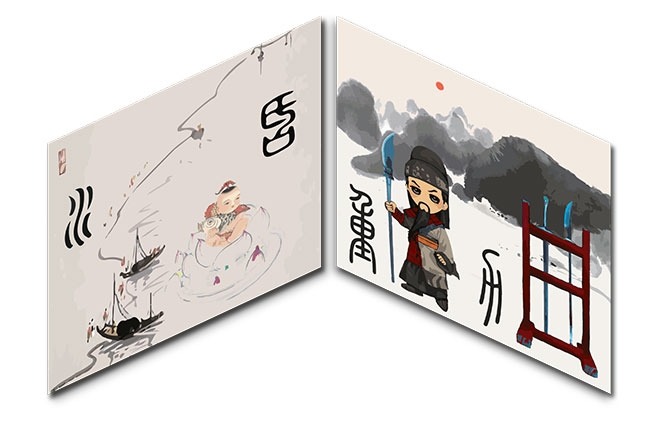“All I want for Christmas is yoouu”, chimes Mariah Carey in the background of your local tinsel draped mall, which looks as if Santa has vommited. It is the week before Christmas, panic has set in, and you find yourself indecisively strolling down aisles of candy canes, after shave and discounted bathrobes.
Having been battered with vast amounts of disturbing seasonal sales promotion, especially designed to swindle you out of your last hard earned dollar, you finally emerge from the whole experience, “Jingle Bells” still ringing in your ears and commercially trampled as the new owner of a gym membership and some candles for your mum.
Seasonal sales are when foreigners are quite accustomed to the sort of in-your-face, intrusive and downright annoying invasion of discounts and promotions. In fairness (and largely to do with widespread public awareness as to the devilish tricks of the marketing savvy), this kind of overt gonzo promotion luckily dies down after the festive season has ended.
At least with overt tactics you can see and know what you are up against; call it a bit more of a fair game. These days, marketing in general has become more sophisticated and subtle; what is scarier perhaps is that it is affecting you now at this very moment and you don’t even know about it.
Roughly five years ago, competitive promotion of products, businesses, schools and restaurants really started to kick off in Nanjing. Walk through the centre of Xinjiekou (or any commercial street for that matter) and loudspeakers outside shops would blare their daily deals (on repeat). As if that wasn’t enough, bum bag speaker clad women would squeal into their microphones the prices of every product in their hair accessories shop in the hopes to cajole you in.
Too afraid we became to head down the fabric softener aisle in fear of a pretty robot woman in a small hat and skirt brandishing sausages on a stick at us with a cardboard cup of yoghurt to wash it down. Such an offensive, unfortunately, was not reserved for holiday seasons in China; it was encouraged day in day out, to a point that really made simply going shopping a most draining experience indeed.
All major supermarket brands, hair dressing salons, spectacle shops and lobster houses have, over the years, routinely run these kinds of “huodong” (活动). Huodong, and its many uses, can be understood as; (n.) campaign / event / activity – (v.) to act – move about – exercise / be shaky – unsteady / use personal interest – activity – behaviour – activist / public figure – to use many ways to promote a friendship – conspiracy; to conspire against others and espionage.
Huodong can be used to describe “activity” and/or “event”. It is also employed to describe a promotion or advertising campaign, the handing out of flyers, a get together with family or friends, even an old man talking his birds in their cage for a walk.
It is a versatile word that gives the vocabulary-short foreigner enough leeway to guess at its correct use, and usually be right.
As marketing and master manipulation begins to have less of an effect on the Western consumer, we are left to wonder how much and what type of marketing works on the Chinese consumer? Is heavy promotion in China needed in order to convince the average consumer that this product is what they need? Or are brand awareness, popularisation and trust enough?
Just as with every other periodic transistion in modern China, the stages of promotion have also warped at lightening pace. Those pretty girls in hats with sausages on a stick have been largely replaced with savvy WeChat advertisement banners, in a matter of a couple of years. Vulgar music blaring outside shops has been swapped for celebrity-endorsed pictures on the back of buses (See The Gavel, p34). Mobile phone numbers have long ago been sold to telemarketeers whom try daily to infiltrate the newly affluent middle class, scheming and conniving their way into bank accounts.
Across the board, promotion of everything in China is changing; ever faster, ever bigger. All you have to do to notice the difference is get out of Nanjing; heck, even to the nearby surrounding districts such as Pukou. This will reveal the stark contrast in how promotional strategies have changed within the city. The first-tier cities of China now handle a different kind of consumer beast, that of the emperor or empress-centred, 4-2-1 family; a millennial whose kingdom of disposable income has far surpassed any need for material goods, and who has arrived at a state of vanity that only the luxury houses of Paris know how to nourish.
For the government, fine, for this is exactly what it needs; home spending and consumerism is what will keep this country’s economic veins pumping. Just as with the United States, or Hong Kong for a more nearby example, China is fast becoming one giant mall, designed to feed the brand hungry, thus making the capitalist need for brand promotion more crucial than daily deals and bargain basement price publicity.
This is the type of huodong that we now see; an understanding of popularity and brand trust, a different approach to harnessing fundamental human interactions in order to sell products. From the world of the Internet, the terms “viral”, “key word search” or “influencers”, for example, are industry clauses that Western marketing professionals are only just starting to understand; those which Chinese first-tier millennials have been utilising for quite some time now.
Huodong activity has certainly been nearly silenced in the bigger cities of China. Yet its silent but deadly invasion of your privacy continues unabated. Just as with China’s American idols, brand Huodong is becoming a monster in itself, screaming out at you from the phone you hold in your hand, every hour of every day.









